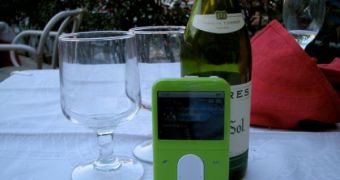On Wednesday, a New Zealand resident handed over an incriminating mp3 player to American authorities, thus concluding a tense period for him and for the Americans. The man purchased the device from a regular store a while back, only to find various documents on it that were most likely left behind as a result of the unit's hard drive not being formatted when it changed owners. The files contained personnel records for people that served in Afghanistan and Iraq during the wars in these countries.
The New Zealand One News television program, which broke the story, announced that the man had purchased the player from an Oklahoma thrift shop for the price of $10. When he connected the device to his personal computer, he realized that he was looking at nearly 60 personal files, which were labeled as classified. In addition to the individual information about troops stationed in the Middle East, the mp3 player also had several schematics of equipment deployed in the battle fields.
The disposition of various supplies in American bases was also on the drive, as was a detailed mission briefing. Active phone numbers and social security numbers of Iraq and Afghanistan personnel were also found on it, which raised potential concerns of a security breach, and of how the data came to be on the unit. However, further details on the matter were not made public, due to national security reasons, American authorities announced.
The New Zealand Press Association announced that 29-year-old Chris Ogle was contacted by US embassy officials on Tuesday night, and offered a new mp3 player in exchange for the one he had purchased in Oklahoma. On Wednesday, the swap was made, and American authorities regained possession of the sensitive information. "They asked where I'd bought it from, the time frame that I bought it in," Ogle said.
He added that the US authorities asked him if he made copies, or if he shared the data with anyone else. He was also denied additional information about the sensitivity of the data, though he was congratulated for his cooperation.

 14 DAY TRIAL //
14 DAY TRIAL //